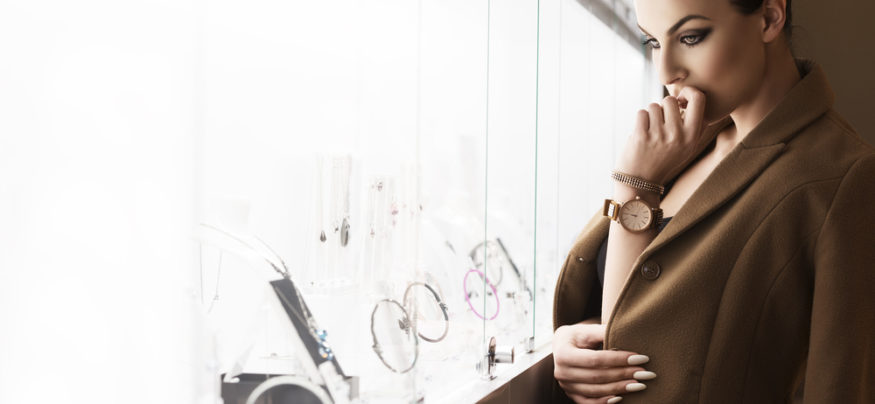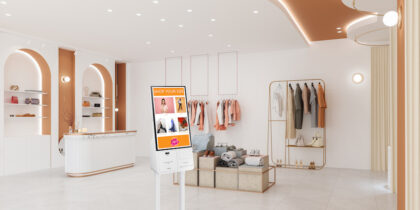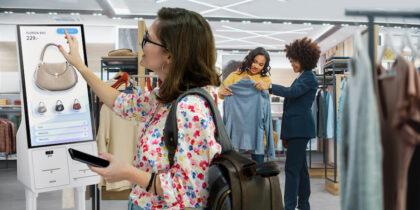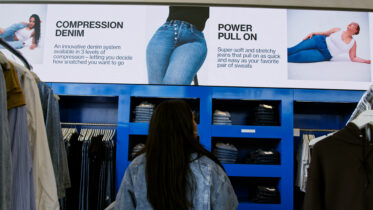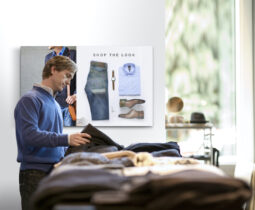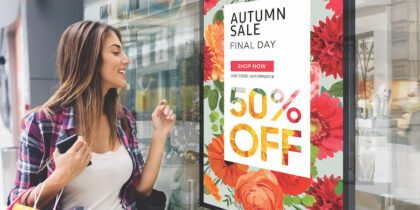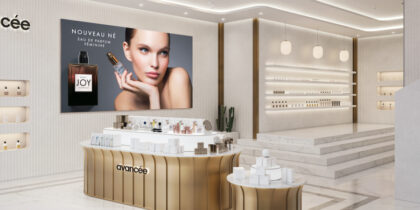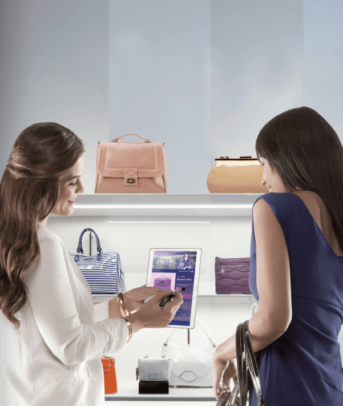To secure a successful future in luxury retail, brands must proactively innovate the customer experience to build loyalty with an increasingly diverse customer base. Offering personalized, one-on-one interactions with customers that are consistent across retail store and digital touchpoints is key to achieving that loyalty. Customized, efficient and convenient in-store experiences strengthen customer relationships and drive sales.
In fact, 53 percent of consumers say superior customer service is an “essential characteristic” of a luxury brand — a close second to superior quality (67 percent), according to the Luxury Institute’s 2018 “State of the Luxury Industry” report. Millennial consumers aren’t the only ones who place a high priority on a personalized retail experience, either. “Across all generations, experience matters most,” says CEO Milton Pedraza of the Luxury Institute. “The product needs to be good, but the experience has to be great.”
Placing flexible mobile technology directly into the hands of empowered store associates can streamline and enhance the customer journey. Retailers who provide mobile sales tools to store associates experience 77 percent higher growth in sales than non-mobile competitors, according to data cited in the Samsung white paper, “How Data and Mobile Technology is Transforming Retail Associate Performance.” Mobilizing in-store experiences especially matters for luxury brands, since the majority of affluent consumers still prefer to purchase goods in-store instead of through digital channels, per McKinsey research.
Mobile devices can deliver new possibilities for luxury retailers to create exceptional in-store experiences. In particular, hybrid devices that can accompany the associate throughout the customer journey can enhance personalization, immersive product showcasing and smarter back office management. In 2019, 42 percent of retailers will increase investment in hybrid point-of-sale (POS) devices, such as tablets that can be docked to peripheral accessories, according to the same Samsung white paper. Flexible, powerful solutions such as the Samsung Galaxy Tab S4 can empower luxury brands to innovate the customer journey.
Personalized Service
Next to prompt service and smart recommendations, what modern customers want most from their retail experience is personalized service. Today’s luxury consumers place a particular value on personalized retail experiences, which is reflected in the trend towards placing fabrication and customization facilities in retail stores.
Purpose-built apps on the secure Knox platform can incorporate artificial intelligence (AI) to create personalized recommendations based on a shopper’s purchase history, browsing patterns and individual needs. Luxury brands are already using purpose-built apps to help shoppers select the right skin care products based on individual diagnostics or to authenticate gems, according to Retail Touchpoints.
Instant Access to Information
Seventy-eight percent of shoppers are more likely to buy when helped by a knowledgeable associate, while 57 percent report that store associates collaborating on mobile technology contributed to “prompt, personal service.” When hybrid mobile devices like the Tab S4 are loaded with purpose-built apps, retail associates are empowered to solve any customer question or request. Mobilizing the brick-and-mortar experience allows the associate to:
- Find requested inventory items in-store, at a different retail location or online
- Increase sales by recommending accessories that enhance a purchase
- Place special orders for customized items or arrange product delivery
- Perform efficient, streamlined checkout by using a hybrid device as POS
Showcase Products
Direct experience is still the most popular way for luxury consumers to approach the purchase process, according to a recent survey by Google. Seventy-two percent of customers prefer to talk to a product expert firsthand or view the product in store compared to seeing the product on an influencer blog, social media or advertising — a figure that jumps to 82 percent of customers in new markets. Simultaneously, many luxury retailers are choosing to create more “experiential” retail experiences to display product quality in creative ways.
Transform Retail Associate Performance
Get your free guide to empowering retail associates with mobile devices and data. Download Now
Mobile technology can provide an opportunity for associates to showcase the full range of products to customers without being limited to products currently offered in the store. With the Tab S4’s 10.5-in. high-resolution display screen and Dolby Atmos speakers, associates can educate customers on products with immersive showcase displays.
Understand the Customer Journey
One of the most notable current trends in retail, clienteling (also known as assistive selling), is defined as the deliberate strategy of innovation to build long-term relationships with customers based on preference, behavior and purchase data. To fuel improvement in the retail experience, luxury brands should continually capture insights on the behaviors of the customer population and individual buyer. Empowering door greeters with mobile technology can allow greeters to log the location of shoppers in-store in real time and assign team members to help buyers. Mobile apps can improve customer service and aggregate insight into the customer journey.
Streamline Back-Office Management
Inventory management and other back office processes can have a significant impact on the quality of the customer experience. If a customer does not find an item in stock, 72 percent will shop with a competitor and 67 percent will forego future trips to that retailer. Mobile technology can streamline the process of tracking inventory stock and movement. The powerful computing capabilities of the Tab S4 coupled with inventory management accessories can enable associates to streamline back-office tasks, including:
- Click and collect fulfillment and BOPIS (Buy Online, Pickup In Store)
- Store transfer requests and fulfillment
- Replenishment, inventory-taking and receiving
- Floor sets and planogram compliance
- Centralized, collaborative task management
Today’s luxury customers value a personalized, streamlined in-store experience to view products firsthand before making a purchase decision. While brick-and-mortar purchases are still the most popular option for affluent consumers, mobile and digital technologies play an important role in enhancing the customer journey. To meet evolving consumer expectations, luxury retail brands should consider the value of hybrid mobile to innovate the in-store experience.
Placing powerful, flexible mobile devices in the hands of luxury retail associates is key to unlocking an enhanced in-store experience. Download our comprehensive guide to creating a mobile-first retail store.
